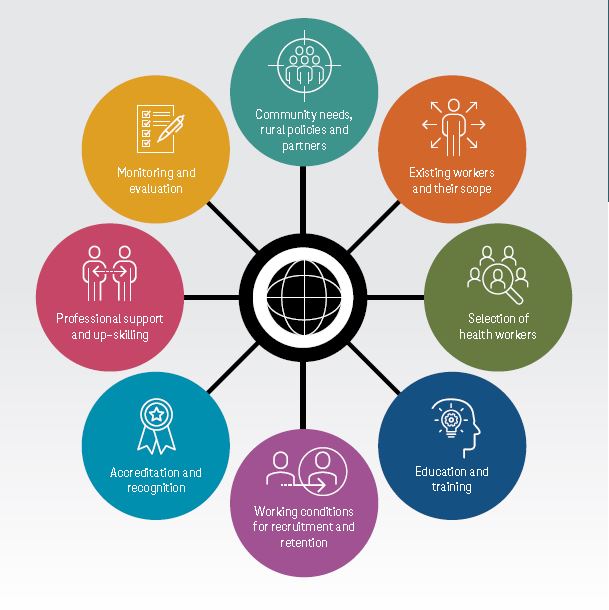Rural Round-up: Landmark Global Rural Framework Released for Consultation
 Assoc Prof Alan ‘Bruce’ Chater, Secretary and Chair Elect WONCA Working Party on Rural Practice write on the “Checklist for implementing rural pathways to train and support health workers in low and middle income countries (LMIC): which WHO has approved for consultation.
Assoc Prof Alan ‘Bruce’ Chater, Secretary and Chair Elect WONCA Working Party on Rural Practice write on the “Checklist for implementing rural pathways to train and support health workers in low and middle income countries (LMIC): which WHO has approved for consultation.
Why do we need a Checklist?
The shortage of rural health professionals including family doctors is common across the world including Northern and Southern Hemispheres, high income countries (HIC) and low and middle income countries (LMIC). Although it is tempting to think that there is a single or simple answer to this disparity, experience across the world has shown that the strongest and most sustained results are achieved by a coordinated pathway that includes recruiting and training rural workers in rural communities for rural practice and ensuring professional working conditions which promote retention. This requires a continuous, connected and sustained effort to produce real benefits for rural people, but in return it delivers social, economic and health benefits to rural communities by providing pathways into health work for rural people.
What is it?
In late 2018, the World Health Organization sponsored the WONCA Working Party on Rural Practice (Rural Wonca), in partnership with Monash University to develop a comprehensive Rural Pathways Checklist. The Checklist covers development, recruitment and retention of all types of skilled and qualified rural health workers in a

range of countries and contexts but specifically focussed on evidence from and solutions for low and middle income countries. It is intended to help guide how to build strong primary care teams with all professionals working at broad scope to address the needs of rural communities. The Checklist includes eight inter-dependent action areas. Each is important and the more actions that are implemented, the stronger the effect. For each of these, a series of questions and a summary of evidence is provided to support reflection, learning and action for implementing rural pathways. The evidence is supplemented by a series of exemplars.
How was it developed?
The Checklist was developed based on a large-scale review of literature and policies about rural pathways in low and middle income countries. Many global stakeholders provided input during a global consultation process to shape and fashion the document. We were exceedingly proud that despite their obvious challenges with heavy workloads and limited facilities, rural services in LMIC produced exceptional exemplars. Thanks to our wonderful network of rural health professionals, rural generalists and family doctors for their help in providing guidance and feedback throughout the development phase.
What next?
The Checklist is now undergoing consultation and field testing for a planned release at the World Rural Health Conference in Albuquerque, New Mexico, USA over October 12-15, 2019. Feel free to use it benchmark your local or national health system. Please share with all your local, national and international medical and non-medical professional associations, health services and program staff and encourage them to do the same. We will also be presenting the Checklist at Conferences, in person and through email, as part of a formal consultation and field testing process soon.
If you would like to participate in this, please send your details to
Belinda.osullivan@monash.edu.au
draft document for consultation
We can only succeed for our rural communities if we get the support of you at the front line and as many of our professional organisations as possible.